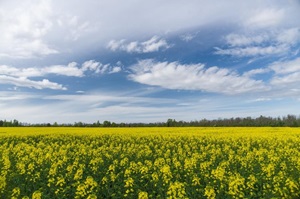- Building Innovations
- LED Lighting
- Mergers and Acquisitions
- Mergers and Acquisitions
- Lighting Technologies
LED Lighting for Horticulture Applications Experiences Growing Interest

LED lighting provides numerous benefits, such as increased efficacy, energy efficiency, and controllability. Within the horticulture market, LEDs provide these benefits as well as the possibility to provide improved crop yields and greater control of quality. Lighting and technology vendors are seizing the opportunity to join this quickly growing market by launching new product offerings and expanding opportunities through acquisitions. In its recent LED Lighting for Horticulture Applications report, Guidehouse Insights estimates global luminaire revenue for horticulture applications will reach $3.8 billion by 2027. LED luminaire revenue is expected to overtake legacy lighting technology luminaire revenue during the forecast period and grow at a 28.6% compound annual growth rate.
Company Expansion through Acquisition
Some companies have turned toward acquisitions in addition to internal expansion to gain market share. Lighting incumbent OSRAM recently announced the acquisition of Texas-based Fluence Bioengineering, a manufacturer of smart grow lights. The company offers LED horticulture systems using OSRAM’s LED chips and claims an increase of harvests by 25% and energy cost reductions up to 50%. OSRAM’s venture capital arm, Fluxunit, also recently acquired a stake in Montreal-based horticulture startup Motorleaf in a seed financing round. These two strategic expansion decisions, in addition to OSRAM’s existing horticulture offerings, shows the company’s investment in this market.
Growth of Available Products
In the past month, numerous companies have announced LED product launches for horticulture applications. Heliospectra, specializing in lighting technology for greenhouses and controlled plant growth environments, commercially launched its HelioCORE software. Designed to allow businesses to automate and connect growing environments, HelioCORE allows the grower to control the consistency of operations and crop quality. LED manufacturer Luminus Devices Inc. has expanded its LED horticulture portfolio as well with the launch of its new SST-20 series white LEDs, citing a need for improved crop yields. Additionally, Signify (formerly known as Philips Lighting), Samsung, and EVERLIGHT ELECTRONICS have all announced new LED horticulture products or expansion in the horticulture market.
Illuminating the Path to Quality Products
Despite the strong growth forecast and continued product expansion of the LED horticulture market, these products remain more expensive than non-LED lighting for horticulture applications. The promises of increased crop yields and superior quality, while enticing, have not convinced everyone. With a flood of products available on the market, differentiating quality products will need to be prioritized for growers and for market expansion. Lower quality products risk disincentivizing future adopters of LED lighting for horticulture applications. Manufacturers must back up claims of improved crop yields and superior quality to help drive the market and persuade customers to deploy LED lighting solutions for horticulture applications.